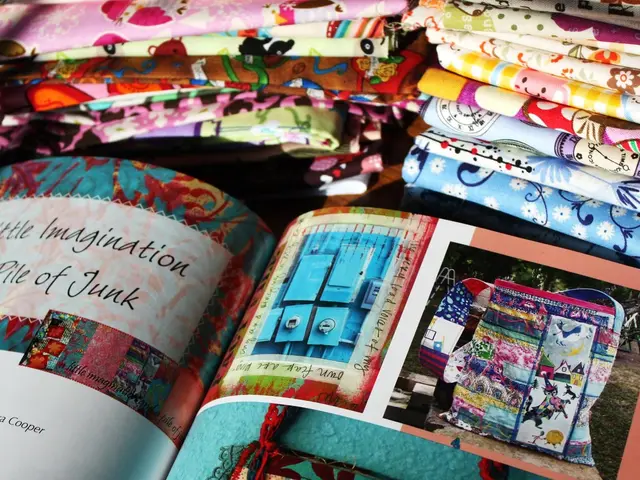Unleashing Creativity: The Power of Free Play for Kids
Unwanted Interruptions Prohibited: The Impact of Play on Children's Growth and Development - Kindly maintain distance, we're occupied!
Free play, a mainstay of childhood, is paramount for kids' growth and development. The essence of free play is that children should have the autonomy to decide what, how, with whom, and where they want to play. This freedom is vital for their personal growth, creativity, and social interaction.
According to Anne-Charlotta Dehler from the German Children's Aid, free play enables children to fully explore their natural play instinct, appreciate their surroundings, grasp connections, and have fun. It's an essential aspect of overall development, promoting emotional, cognitive, and social growth.
Play researcher Wiebke Waburg from the University of Koblenz discusses the benefits of free play, revealing that children learn what they enjoy and develop essential social skills like compromise, negotiation, and conflict resolution during joint play with their peers. Interestingly, a child's fascination with playing with other children may even lead them to appreciate the company of others and build lasting friendships.
Volker Mehringer, a social pedagogue and play researcher from Augsburg, brings up whether children today have enough freedom to indulge in free play. While there may not be specific studies for Germany or Europe, Waburg hints that children may be left with limited playtime due to heightened focus on early childhood education in kindergarten after the Pisa shock, resulting in a more structured environment.
Moreover, cramped cities often pose a barrier to free play, as they prioritize traffic over safe, open spaces that allow kids to run around together. Therefore, children are increasingly deprived of opportunities to play freely both indoors and outdoors, extending beyond time constraints to encompass a lack of suitable play areas.
In an attempt to raise awareness about children's fundamental right to play, the UN Convention on the Rights of the Child has designated a World Play Day. This day aims to invite communities worldwide to celebrate the importance of play, leisure, and rest in children's lives. In 2025, the German Children's Aid and the Right to Play Alliance plan to organize various activities around the day.
The notion that play should be a source of joy is essential, as Mehringer points out. If learning becomes the central focus, the true essence of play-fun-may get lost in the process. Doubts also linger over whether children would engage with toys that appear overtly educational for long periods. After all, children can easily discern if a toy is simply a pedagogical tool with an ulterior motive.
So, do kids even need toys to play? Waburg suggests that although toys aren't a prerequisite for play, they play an essential role in children's lives today. Toys such as dolls, stuffed animals, and building blocks not only enhance creativity but also encourage children to communicate and cooperate, providing building blocks for a strong foundation of emotional growth.
Parents can play a crucial role in fostering free play. As Mehringer states, the process of playing is inherently linked with learning and development. It's important to simply allow children the freedom to play and let their imagination run wild. Parents shouldn't always look for measurable results or immediate learning outcomes, as the children will naturally develop essential skills via playful exploration.
- Children
- Development
- Play
- Emotional Growth
- Cognitive Skills
- Social Skills
- Creativity
- World Play Day
- UN Convention on the Rights of the Child
- Child Development
- Celebration
- Holistic Development
- Toys
- Learning Tools
- Emotional Growth
- Social Skills
- Creativity
- Germany
- Structured schedules
- Urbanization
- Nuremberg
- Celebration
- Environment
- Safety Concerns
- Open Play Spaces
- The importance of free play extends beyond children's immediate environment, influencing not only their own lifestyle and personal growth, but also home-and-garden policies as communities strive to provide safe, open spaces for children's holistic development.
- Encouraging free play is a crucial aspect of education-and-self-development as it fosters children's cognitive skills, emotional growth, and social skills, laying a strong foundation for future personal and professional success.








